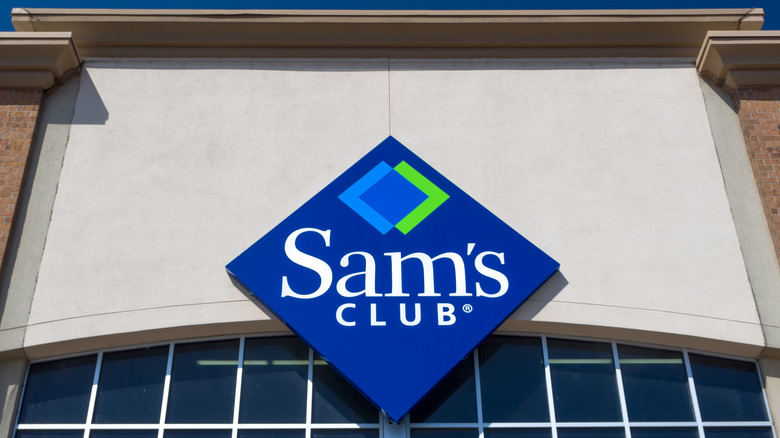Sam's Club Just A Made A Huge Change To Its Rewards Program
Sam's Club, the warehouse chain owned by the Walmart corporation, is known for its competitive prices and membership perks. Sam's Club sells bulk items at warehouse prices in direct competition with rival Costco. Sam's Club first opened in 1983 and was named after Walmart founder Sam Walton. Though Sam's Club reported $57.8 billion in sales for 2019, that figure is down about 2.3% from the previous year, according to the SEC. And in 2018, Walmart chose to close 63 Sam's Club locations across the country, some with little to no notice for its employees, reports Business Insider. But the Sam's Club website says the company still boasts over 600 locations nationwide. Part of the draw of club-style warehouses is the rewards and perks that come with the membership, beyond just the lower prices. The 40% lower price tag as opposed to regular grocery stores isn't too bad either (via Motley Fool). Sam's Club has recently changed its rewards program though, possibly in an effort to pull in new customers.
Rewards have increased and consolidated
Sam's Club membership is divided into two tiers: "Club" and "Plus." The "Club" option is $45 per year and doesn't include the free shipping, pharmacy, and optical savings, plus Sam's Cash that the $100 yearly "Plus" program does, according to the membership page on the Sam's Club website. The new Sam's Cash program is the latest version of the previous Cash Rewards for Plus members and Cash Back on the Sam's Club credit cards. The Sam's Cash program allows customers to get 2% back on certain purchases with a limit of $500 per year. Clark also reports that members can now cash out monthly instead of just annually and use their accrued Sam's Cash for online or in-store purchases, toward a membership fee, or just in the form of actual cash, and the Sam's Cash never expires. Sam's Club says that Sam's Cash replaces the other various rewards programs so members can track all their consolidated rewards in one place rather than the previous system of overseeing everything separately.

